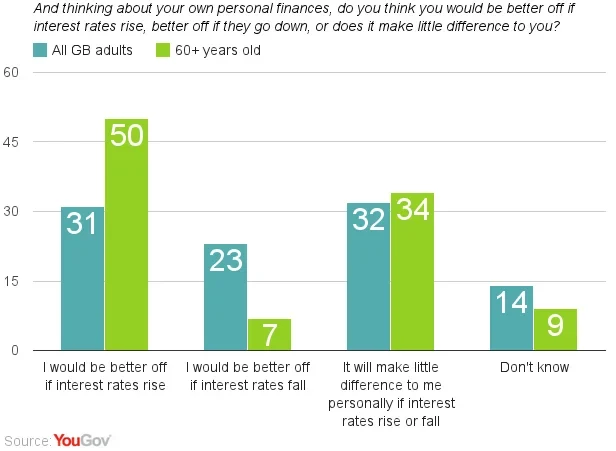People in Britain are more likely to think an interest rates hike would make them better off
Business secretary Vince Cable recently warned that interest rates may need to rise to hold back a ‘raging housing boom’. The call comes as faster than expected economic recovery has fueled speculation that a rate rise is on the horizon.
But a new YouGov poll conducted for The Times suggests that British people are more likely to think they would be better off if rates went up than down, and most feel they would be unaffected by rising house prices.
Nearly a third of the public – including fully half of over-60s, whose pensions are less valuable due to the rock-bottom rates dating from the 2008 financial crash – believe an interest rate hike would leave them better off, while another third feel the change would make little difference to their personal finances.
In comparison, only 23% believe they would be better off if rates fell further, an unlikely event given rates are already at a record low of 0.5%.

The over-60s are considered a key voting group because members of the age group are particularly likely to reach the ballot box come election day.
The same survey showed that British adults are less than enthused about rising house prices. The majority of the public – 63% – believe a change in house prices would make little difference to their personal financial lives. Most of the remaining population is about evenly split between those that feel they would be better off if prices went higher and those that feel they would be better off if prices dropped.
Although house prices have yet to reclaim their 2007 peak, 2013 has seen prices rise steadily. Interest rates, meanwhile, have been held at the historic low of 0.5% since March 2009. Bank of England governor Mark Carney has previously said the Bank would not even consider raising rates until unemployment falls below 7%, an event that was not expected until 2016. But in December it was announced that unemployment had fallen 0.2% in one month to 7.4%, a four-year low and a faster-than-expected drop that suggests 7% may be reached even before the general election in May 2015.
Image: Getty







